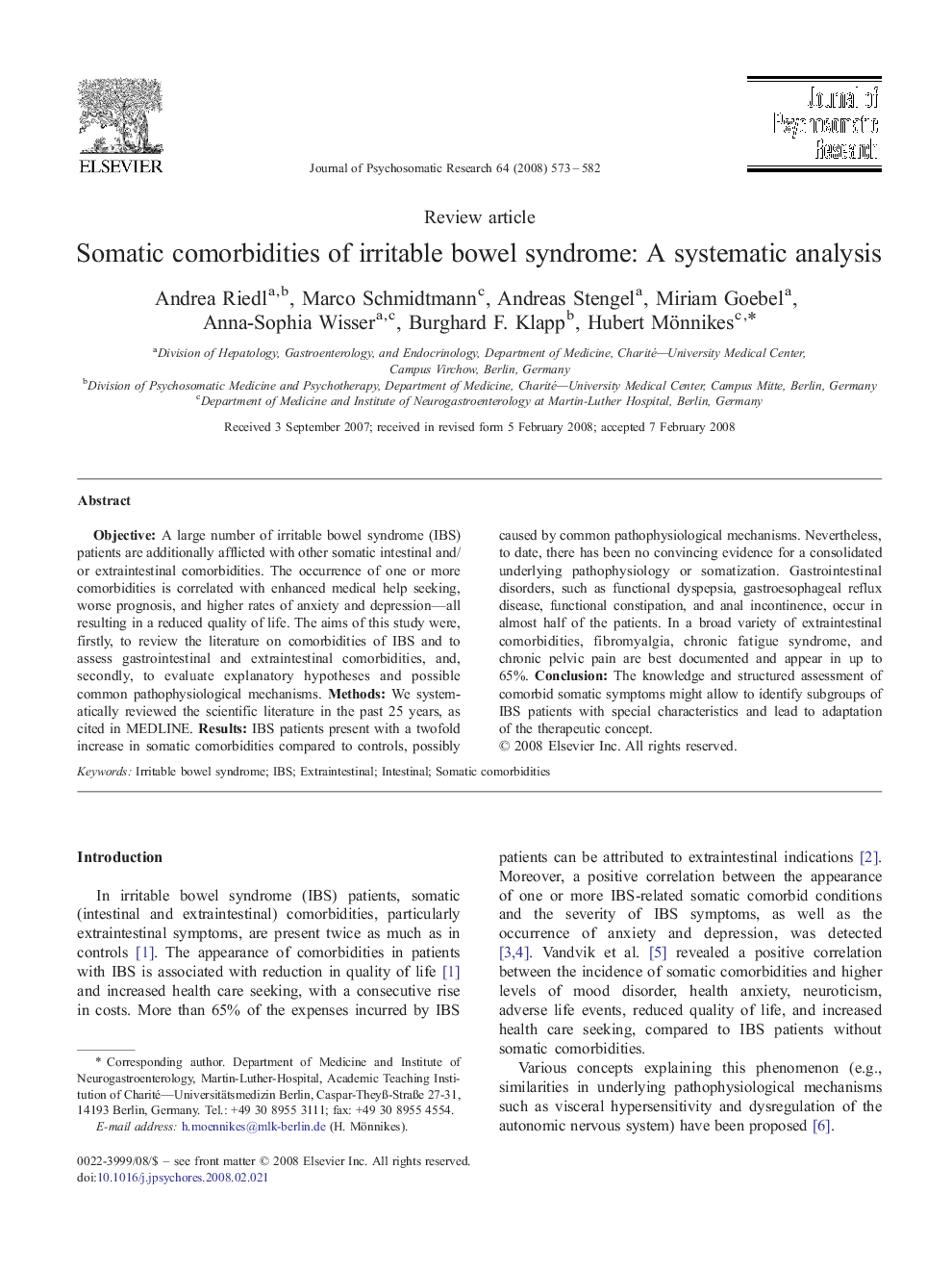| Article ID | Journal | Published Year | Pages | File Type |
|---|---|---|---|---|
| 950720 | Journal of Psychosomatic Research | 2008 | 10 Pages |
ObjectiveA large number of irritable bowel syndrome (IBS) patients are additionally afflicted with other somatic intestinal and/or extraintestinal comorbidities. The occurrence of one or more comorbidities is correlated with enhanced medical help seeking, worse prognosis, and higher rates of anxiety and depression—all resulting in a reduced quality of life. The aims of this study were, firstly, to review the literature on comorbidities of IBS and to assess gastrointestinal and extraintestinal comorbidities, and, secondly, to evaluate explanatory hypotheses and possible common pathophysiological mechanisms.MethodsWe systematically reviewed the scientific literature in the past 25 years, as cited in MEDLINE.ResultsIBS patients present with a twofold increase in somatic comorbidities compared to controls, possibly caused by common pathophysiological mechanisms. Nevertheless, to date, there has been no convincing evidence for a consolidated underlying pathophysiology or somatization.Gastrointestinal disorders, such as functional dyspepsia, gastroesophageal reflux disease, functional constipation, and anal incontinence, occur in almost half of the patients. In a broad variety of extraintestinal comorbidities, fibromyalgia, chronic fatigue syndrome, and chronic pelvic pain are best documented and appear in up to 65%.ConclusionThe knowledge and structured assessment of comorbid somatic symptoms might allow to identify subgroups of IBS patients with special characteristics and lead to adaptation of the therapeutic concept.
